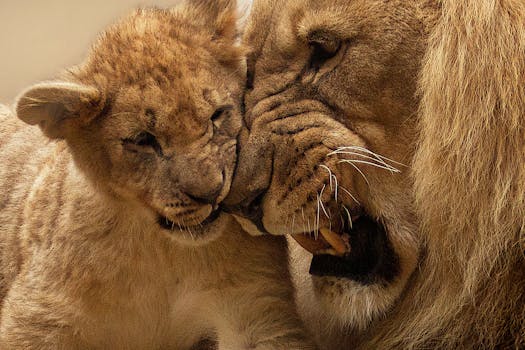What is family dynamics?

What is Family Dynamics?
Family dynamics refers to the intricate web of relationships, interactions, and behaviors that govern how family members relate to one another. Understanding these dynamics is crucial because they significantly influence emotional health, relationships, and overall family functioning. In this article, I’ll explore the essence of family dynamics, its components, types of family structures, external influences, and ways to improve family relationships.
Defining Family Dynamics
Family dynamics encompasses the interactions and behaviors that occur within a family unit. It includes the roles each member plays, their communication patterns, and how they respond to one another’s actions and emotions. These dynamics can shape individual identities, affect mental health, and influence life choices.
Components of Family Dynamics
Several essential components make up family dynamics:
-
Communication Patterns: How family members speak to one another can greatly affect relationships. Open and honest communication fosters trust, while poor communication can lead to misunderstandings and conflict.
-
Power Structures: Every family has a hierarchy, whether clear or implicit. Some families may have one dominant figure, while others might share power more equally. Understanding these structures can help in navigating family relationships.
-
Emotional Interactions: Emotions play a vital role in family dynamics. How family members express love, anger, frustration, or support can significantly influence their interactions and overall family health.
Understanding these components can help you recognize patterns in your family dynamics. For more insights, you might explore What are Family Dynamics?.
The Role of Family Dynamics in Relationships
Family dynamics also extend beyond the household. They affect how individuals relate to friends, partners, and colleagues. For instance, someone raised in a supportive family may have healthier relationships outside the family, while an individual from a more dysfunctional background may struggle with trust or communication. The impact of family on relationships is profound, shaping our ability to connect with others.
Types of Family Structures
Different family structures exist, each with its own unique dynamics:
-
Nuclear Family: Typically consists of two parents and their children. This structure often fosters a strong unit but can also create intense loyalty dynamics.
-
Extended Family: Includes additional relatives, such as grandparents, aunts, uncles, and cousins. This structure can provide a broader support network but may also introduce complexity in relationships.
-
Single-Parent Family: One parent raises the children, which can lead to unique challenges, including financial stress and time constraints.
-
Blended Family: Formed when one or both partners have children from previous relationships. Navigating relationships in blended families can often be challenging due to differing loyalties and histories.
Understanding these structures can help in recognizing the specific dynamics at play. If you want to learn more about different family types, check out the insights from Six Family Types And Their Unique Dynamics.
Impact of Family Structure on Dynamics
The type of family structure significantly affects interactions and communication within the family. For instance, a nuclear family may prioritize privacy and independence, while an extended family may encourage communal living and shared responsibilities. Each structure presents its own set of challenges and benefits that shape family dynamics.
Influence of External Factors on Family Dynamics
Family dynamics are not created in a vacuum; they are shaped by external factors such as culture, socioeconomic status, and life events. Here’s how these influences can manifest:
-
Culture: Cultural backgrounds dictate traditions, roles, and expectations within families. For example, in some cultures, extended families living together is common, while others emphasize individuality.
-
Socioeconomic Status: Financial stability can affect stress levels, access to resources, and overall family well-being. Families under financial strain may experience heightened tension and conflict.
-
Life Events: Major changes such as divorce, relocation, or the death of a family member can shift dynamics significantly. Families often have to adapt quickly to new realities, which can either strengthen or weaken bonds.
For a deeper understanding of how these factors play a role, see Understanding Family Dynamics.
Coping Mechanisms Within Family Dynamics
Families develop coping mechanisms to deal with stress and challenges. These might include:
- Open Discussion: Encouraging family members to express feelings can promote healing and understanding.
- Seeking Support: Families may turn to external resources like counseling or community support groups when facing difficulties.
- Adapting Roles: Sometimes, family members may need to take on different roles to maintain balance during transitions.
Recognizing these coping strategies can help families navigate challenges more effectively.
Improving Family Dynamics
Enhancing family dynamics is vital for fostering a supportive and nurturing environment. Here are some practical tips for improvement:
Strategies for Healthy Family Dynamics
-
Encourage Open Communication: Create an environment where everyone feels safe to express their thoughts and feelings without judgment.
-
Set Boundaries: Establishing healthy boundaries can help family members respect each other’s space and autonomy.
-
Foster Teamwork: Engage in group activities that require collaboration, helping to build bonds and strengthen relationships.
-
Practice Empathy: Encourage family members to understand and acknowledge each other’s feelings, which can enhance emotional connections.
-
Celebrate Uniqueness: Acknowledge and celebrate each family member’s individuality, promoting a sense of belonging and acceptance.
For more ways to enhance family relationships, consider the insights from Tips to Improve Family Relationships.
Conclusion
Family dynamics play a crucial role in shaping relationships and emotional health. Understanding the components, structures, and external influences of family dynamics helps us navigate our familial interactions. By improving communication and fostering healthy relationships, families can thrive, creating a supportive environment for personal growth and development. Exploring and addressing family dynamics ultimately leads to healthier, more fulfilling relationships in all areas of life.